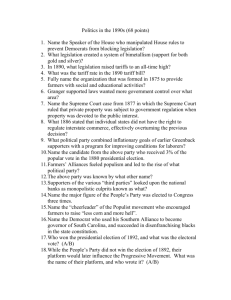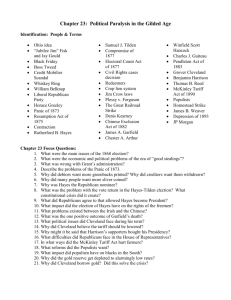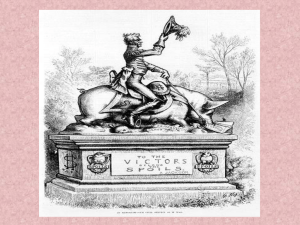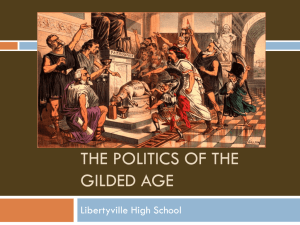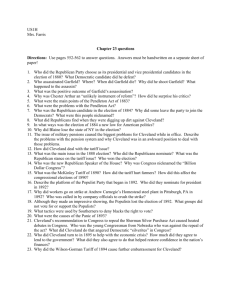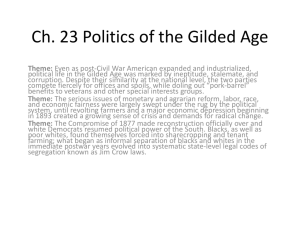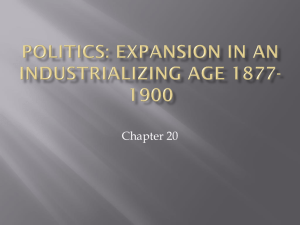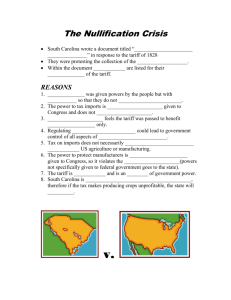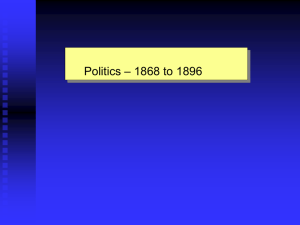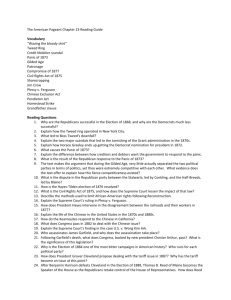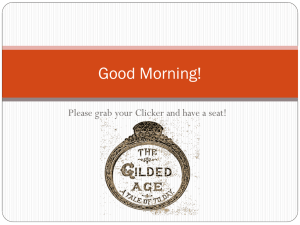notes
advertisement
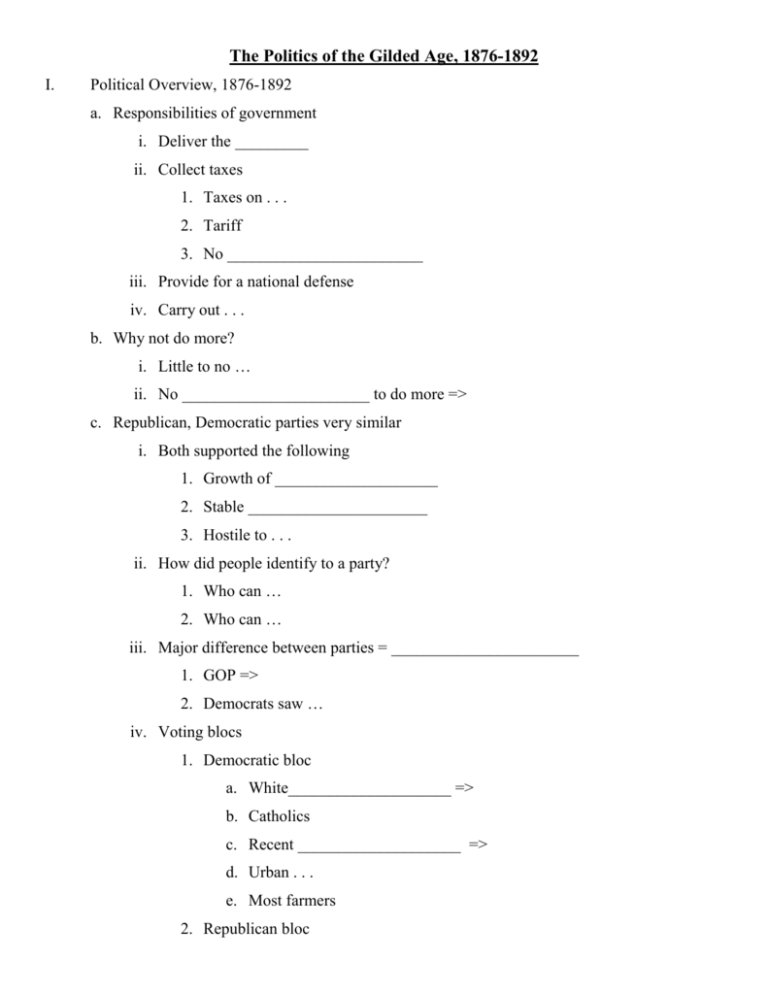
The Politics of the Gilded Age, 1876-1892 I. Political Overview, 1876-1892 a. Responsibilities of government i. Deliver the _________ ii. Collect taxes 1. Taxes on . . . 2. Tariff 3. No ________________________ iii. Provide for a national defense iv. Carry out . . . b. Why not do more? i. Little to no … ii. No _______________________ to do more => c. Republican, Democratic parties very similar i. Both supported the following 1. Growth of ____________________ 2. Stable ______________________ 3. Hostile to . . . ii. How did people identify to a party? 1. Who can … 2. Who can … iii. Major difference between parties = _______________________ 1. GOP => 2. Democrats saw … iv. Voting blocs 1. Democratic bloc a. White____________________ => b. Catholics c. Recent ____________________ => d. Urban . . . e. Most farmers 2. Republican bloc a. Northern ______________ b. African Americans => c. Northern Protestants d. Older WASPs => e. Most of the . . . v. Voter turnout 1. Intense voter loyalty, turnout during this period => 2. Two party “balance” . . . II. Rutherford B. Hayes, 1876-1880 a. Promised to serve … b. Domestic policy i. Civil service reform, due to . . . ii. Sent in the troops in response . . . 1. Angered workers => 2. Angered owners => III. Election of 1880 a. GOP considered Grant for third term => b. Dems considered dozens of candidates … c. Minor parties i. Greenbacks => ii. American Party => d. Result => IV. James A. Garfield a. Born in OH b. Attorney, then fought in . . . c. Elected congressman => d. Assassinated July 2, 1881 => V. Chester A. Arthur a. Attorney, before becoming ___________ b. Got stated in politics . . . i. Ironically, became “______________________________________” upon becoming President ii. Felt he should . . . iii. Pendleton Civil Service Reform Act 1. Established … 2. (Eventually) ended spoils system, for Federal Government a. 1883 => b. 1900 => VI. Election of 1884 a. Campaign of . . . i. GOP Blaine was . . . ii. D Cleveland had . . . b. In last week of campaign, GOP (protestant) preacher . . . i. “Rum, Romanism, and Rebellion” ii. Cost Blaine NY => c. Result => VII. Grover Cleveland a. Born in NJ => b. Elected … c. First Democrat elected … d. Married Frances Folsom => e. Reforms i. Kept R government employees … ii. Signed Interstate Commerce Act => iii. Forced RR companies to … iv. Silver Standard 1. Should US currency be made with . . . 2. Problem: citizens paid with ________________, foreign creditors demanded _____________ 3. This resulted in a … v. Tariffs 1. Cleveland wanted . . . 2. Tariff at ______________!!! 3. Resulted in a . . . VIII. Election of 1888 a. Candidates => b. Main issue = Tariff i. Protectionists (mainly _______ ) argued for . . . ii. Free traders (mainly ____________________) wanted ... iii. Tariff issue took on . . . c. Lowlights of campaign i. Widespread corruption => ii. British Ambassador story => d. Results => IX. Benjamin Harrison a. Born in _______ moved to _______ b. Fought in CW, then . . . c. Economic issues dominated presidency i. Sherman Antitrust Act (1890) => ii. McKinley Tariff (1890) 1. Raised tariff . . . 2. Hurt . . . 3. Helped … iii. Sherman Silver Purchase Act 1. Government required to purchase . . . 2. Silver bought with notes that … 3. Caused Panic of 1893 => iv. GOP lost big in 1890 congressional elections X. Election of 1892 a. ________________ (D) nominated, again! b. Harrison (GOP) nominated c. Weaver nominated by _________________________ d. Main issues => e. Populists championed . . . f. Results: Cleveland kept South => XI. Cleveland’s Second Term a. Economic Panic of 1893 i. Stock market crashed => ii. Congress repealed . . . iii. Silver as basis of ________________________ ended b. Tariff reform i. Cleveland reduced tariff ii. Income tax introduced => c. Labor unrest i. Coxey’s Army => ii. Pullman Strike 1. Cleveland ordered . . . 2. Sent in the troops when . . .
